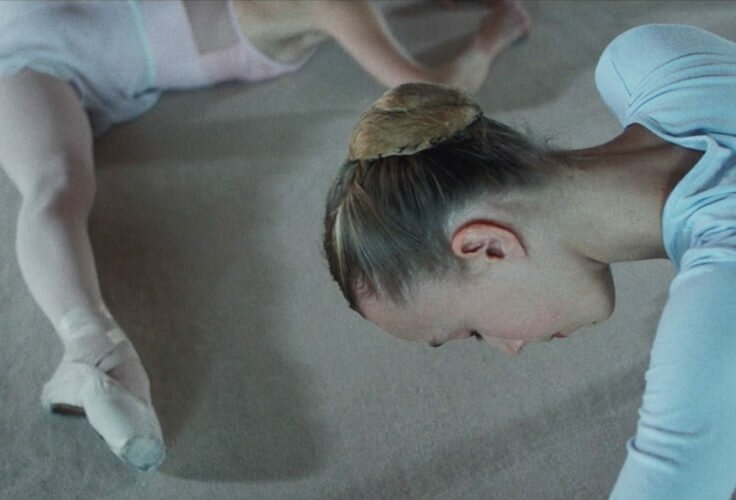Drake ha hecho un videoclip sobre recibir un tartazo en la cara, Child’s Play. Tyra Banks es la lanzadora. Y Ben Tuthill el testigo.
FETTY
vs.
By
Ben Tuthill
THE
SPECTACLE
– the idea that capitalist society treats a product’s economic value as it’s actual objective worth – is a classic concept in Marxist thought. Guy Debord’s revolutionary-sadboy classic describes it as ‘the mystical self-abandonment’ in which ‘a use of the commodity […] is sufficient unto itself […] an outpouring of religious zeal in honor of the commodity’s sovereign freedom’. In other words, a commodity is satisfying in-and-of itself. An Apple computer works because it’s Apple – a bottle of Rémy Martin is luxurious because it’s Rémy Martin.
Debord predicted – but at the same time was totally unprepared for – the spectacular horrorshow that is 21st-century pop culture branding. Nowhere is this more on-display than in contemporary hip hop videos. On one hand, rappers appropriate luxury brands into their identities in ways that their corporate manufacturers – on the other hand, corporations actively use rappers as tools for . There are thousands of examples of this, but we can see all of it dramatically at play in Fetty Wap’s latest video for his single .
Fetty Wap’s fame is, all things considered, evidence that there’s something a little bit wonderful about being alive in 2015. Fetty comes from a nowhere city in , speaks in an , and has – he is in no way fit for mainstream pop success. That America has granted him says something about the affirming spirit of the times. His response – to continue hanging out in his neighborhood while mumbling his way through interviews with an exposed eye socket – says something about his commitment to unbrand-able individuality. It’s a surprisingly positive artist-critic relationship, ‘do you’-ism to it’s fullest.
Like many rappers before him, Fetty’s identity is tied to a particular luxury product. In his case, it’s Rémy Martin 1738, which lends its name to his crew (Remy Boys) and his signature refrain. ‘1738 is the finest liquor in urban district,’ . ‘You go to the liquor store, you get a bottle of 1738, it’s gon’ be the most expensive bottle of Rémy. I thought it was gon’ be the most expensive bottle of Rémy in the world […] I didn’t do my background searching.’
This is a classic hip hop sublimation: seizing a luxury good as a representation of individual empowerment. Remy Boys know that 1738 only means luxury to the ‘urban district’, but they still claim it as their own personal luxury, one-percenter standards be damned. It’s also classic commodity fetishization: Remy Boys love cognac – they see Rémy Martin as reified ‘fineness’.
You can take that two ways – either Fetty Wap is a tool for Rémy’s brand of cheap luxury, or he’s radically affirming his personal experience of that cheap luxury as luxury in itself. Marx and Debord would argue the former, but I can’t help but think that the executives at Rémy aren’t a little bit horrified that an entire generation will forever link their product to the phrase ‘I’m like, hey, what’s up, hello?’ Fetty’s Rémy may be a fetish, but it’s a very different fetish than the one that Rémy has spent three centuries trying to create.
Against this reclaimed fetishization is ‘My Way” product placement. It’s essentially an endless stream of advertisements – Myx moscato, Kandypens vaporizers, Scott motocross goggles. For someone as do-you-ish as Fetty Wap, it comes across as cynical, and more or less pathetic – unlike his appropriation of Rémy, it’s a very obvious kowtow to the power of corporate wealth.
But, at the same time, it’s sort of the same thing. Fetty says it himself – ‘how dare a nigga run his mouth / when his pockets in a drought?’ For Fetty, whose stated principle concern from the very start has been making money, it would be ridiculous to reject corporate money. Corporations have determined that Fetty Wap is profitable, and Fetty Wap is more than happy to take their money. Once again, it’s subversive – a major brand appropriated by someone who, if things had gone differently, would have been a reject of capitalist society.
What are we supposed to make of this? If Debord is right, we live in a spectacularized society and we’re long past the point of escaping from it – if we can’t escape, we might as well appropriate. Fetty Wap is either commodification’s champion or it’s Robin Hood – evidence of the spectacle’s total permeation of all aspects of American society down to the most actively local/individual, or proof of the individual’s ability to free himself despite that permeation. ‘My Way”s branding makes me feel hopeless, but Fetty’s total lack of concern feels liberating.
‘The fetishism of the commodity achieves its moment of acute fervor. The only use still in evidence here, meanwhile, is the basic use of submission.’ – Guy Debord. ‘Everybody hating / we just call them fans though.’ – Fetty Wap. It’s hard to say whose argument holds more water.
























